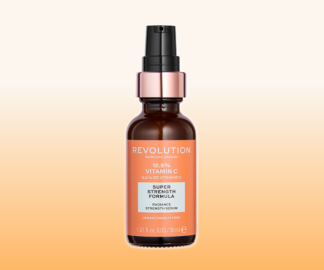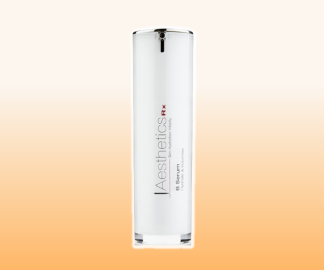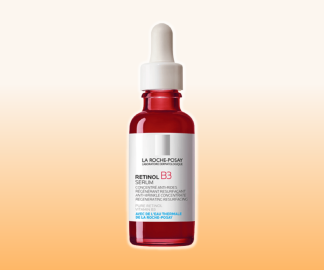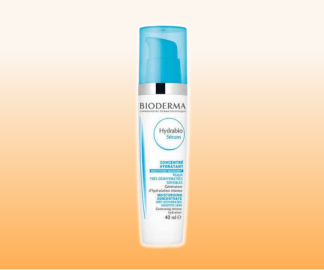Can I Use Two Serums at Once?
As we mentioned, you can definitely layer face serums; just avoid mixing them such as by adding a pump of each serum to your palm and pressing the two formulas together.
Should I Use Serum During the Day or at Night?
Before we answer this question it's important to note that these guidelines aren't universal, all serums are different so check the instructions on the product page or package is always best but here's a rough guideline on whether to use your serum during the day or at night.
Serums You Should Use During the Day
Day serums can contain any actives other than retinol, from antioxidants to humectants to acids, as long as you also wear adequate sun protection. Acids can make the skin more susceptible to sun damage, so protection is a must!
Serums that benefit your skin specifically during the day are antioxidant serums, such as vitamin c serums which counteract the free radical damage caused by UV light. Other serums that benefit the skin during the day as well are hydrating serums such as hyulorinic acids, and brightening serums such as vitamin b serums (or niacinamide as they're commonly called). Soothing serums and spot treatments are also completely fine to use during the day.
Serums You Should Use in the Evening
The big daddy of anti-ageing ingredients, retinol is a skincare powerhouse. Originally researched as an anti-acne treatment, this vitamin-A derivative increases cell turnover to bring fresh cells to the surface, eradicating wrinkles and hyperpigmentation as well as blemishes.
As incredible as it is, retinol shouldn't be used while the sun is shining. Ironically, this potent damage-reversing ingredient dramatically increases sensitivity to sun damage. Don't apply retinol during the day unless specifically noted on the product you’re using, or present in very low concentrations.
Some other serums to use at night are some peels and exfoliating products, its best to check packaging for which ones are best for during the day or night.
Not sure what serum to start with? Here are some serums and serum combinations we recommend. Short on time? Take our serum quiz to find the best serum for your skins needs.











